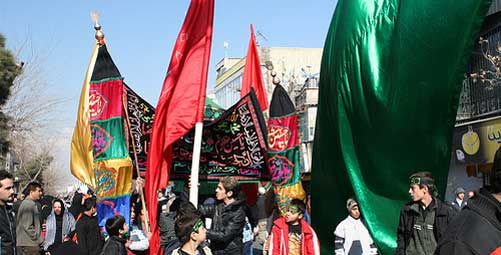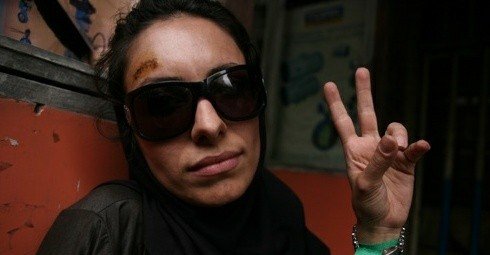
Shiite priests have never been less popular in Iran than under the 30 years of the Islamic Republic. Once respected for relinquishing worldly interests in benefit of spiritual values, they are now generally looked upon as greedy abusers of power for the sake of what they once claimed to resent most; worldly wealth. Yet, people believe that many clerics are still on the side of the good. This is why grand ayatollah Montazeri who decided to resign from his position as Khomeini's successor after Khomeini's approval of mass execution of political prisoners during late 1980's, is highly respected by different social groups. Whereas Montazeri made a choice for spirituality, the majority of the Shiite clergy is stuck at a crossroad.
But the post-Soviet world order and the growing military encirclement of Iran by the New World Order, i.e NATO forces, urges everyone including the god fearing ayatollahs to make their decisions. People on the street have made their decision. They want a future different from that of the past 30 years under the Islamic Republic, a future in peace with a world which promises better conditions of life, guaranteed human rights and employment. The Shiite clergy, however, is either doubtful or under heavy pressure not to betray their religious-military oligarchic pact.
But why is the clergy doubtful? Why can't it just decide and choose one side? Which question should be answered before they can choose side? Can they decide in this matter without regarding the ongoing political conflict in the society? The answer is no. Like in any other social institute, the Shiite clergy is not the institute itself, but the representative of that institute. The institute being religious masses and their disappointment in the way their representatives have handled their wishes and expectations during 30 years of religious rule in Iran.
At the same time, a large part of the Shiite clergy has lost its hope of being rewarded for their support for the regime. The growing expenditures of the huge and inefficient governmental body, including its oppressive forces and militia, eats up revenues from country's export of its only income source; crude oil. The regime prefers to have many cheaply paid, armed and faithful followers among the lower classes than a few highly paid spiritual supporters. If this is true, then a majority of clerics must be in a position to join the popular uprising, or at least become distanced from the ruling oligarchy. In that case they must be waiting for a clearer signal from their clients; the religious masses. When will this signal come?
The main and traditionally the most popular religious ceremonies in the Shiite Iran takes place at the 9th and 10th of the lunar month of Moharram; the martyrdom of imam Hussein in 680 AD. Theses ceremonies gather millions of Iranians every year and are organized by guilds and local committees representing various religious groups including the opposition which has already declared that it will try to turn this event into another powerful manifestation against the government.
Whether they succeed or not is hard to anticipate because of governments record of brutality against recent peaceful demonstrations. One thing, nevertheless, is certain: In case the oposition succeeds in organizing successful mass protests, this years Ashoura ceremonies will force the Shiite clergy to break its bonds with the regime and save what remains of the spiritual vaues it propogates. At the end of the process, they will have moved the religious belief from the threshold of the state back into the hearts of the believers.
In the New World Order of Barack Obama there is no place within the centers of political or economic power for religious, ideological or racial believes. The new World Order is determined to de-nationalize and de-religionize politics and economy. This is the global world economy, the Globalization. And the global world economy still needs the oil wells of the Middle East. It also needs global security based upon political stability; either traditional or military (Saudi Arabia, Emirates) or democratic stability. Stability based upon democracy, however, does not come easy in countries with thousands of years of despotic cultures and sharp class conflicts. In the Iranian case, a majority of the young population, by itself constituting two thirds of the populations, favors democracy in the hope of a better future. This majority, whether religious or secular, has shown that it is ready for any sacrifice to build up a genuine democratic society through peaceful demonstrations. Its success would be a victory for the war worn peoples of the Middle East. Its defeat will encourage NATO to export democracy to Iran, the way it did in Iraq and Afghanistan, though the New World Order needs democratic stability at every price. Has the Shiite clergy in Iran sunk so deep in its worldly greed not to abandon a regime which, like Saddam and the Taliban, is ready to force its people to pay such a high price? Their role in this year's Ashoura ceremonies will give us a clue to the next year's changes in the Iranian political scene. (BD/EK)










